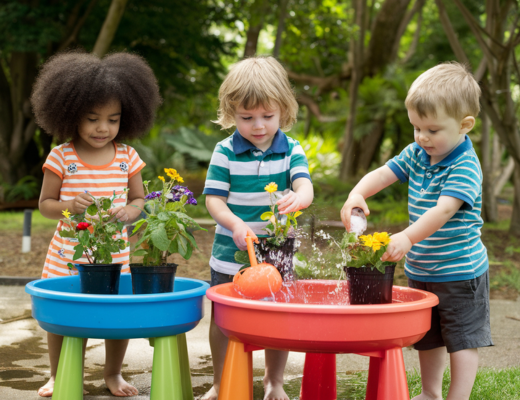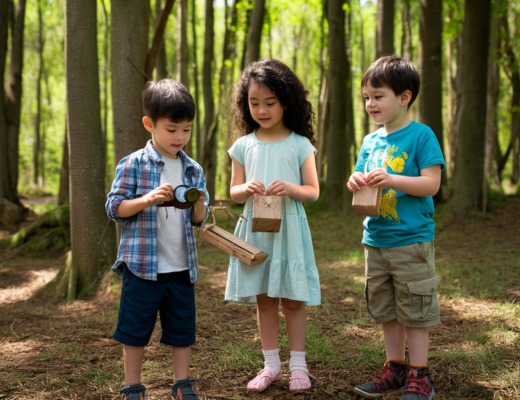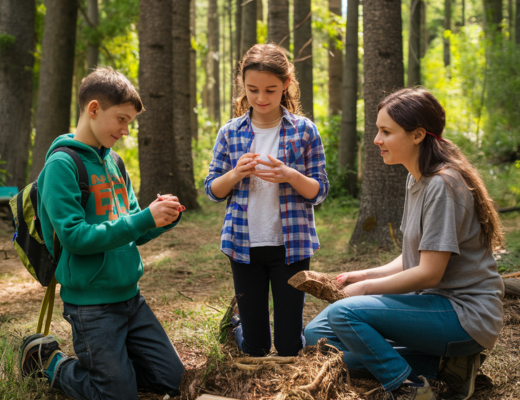Learning Through Summer Play: Engaging Summer Programs for Your Centre
Greg Dixon, Director of Business Development
Tues, June 11, 2024 – 5 min read
As the warm rays of summer beckon, we know you are gearing up for another season of engaging and enriching summer programs.
To assist in your planning, we have curated a list of educational and fun activities tailored for different age groups. These activities can be seamlessly integrated into your existing curriculum or used to build a program from scratch.
This resource aims to make your summer program planning a breeze, leaving you free to focus on what matters most – creating a summer filled with laughter and happy memories.
Sentient HR’s Summer Activity Guide:
Ages: Infant to 2 Years
- Sensory Play Stations: Create various sensory stations with water, sand, and safe, tactile toys to stimulate exploration.
- Nature Walks: Schedule short, guided walks around the centre with frequent stops to observe flowers, trees, and birds.
- Baby Yoga: Introduce gentle movements and stretches that engage infants and toddlers, promoting physical development.
- Story Time in the Garden: Plan outdoor storytelling sessions with picture books about nature and animals.
- Music and Movement: Introduce musical instruments and dance activities to encourage rhythm and coordination.
Ages: 2 to 4 Years
- Mini Gardeners: Plant easy-to-grow flowers or vegetables in small pots, teaching kids about plant life cycles.
- Water Play Activities: Provide water tables with toys and tools for pouring, scooping, and splashing, enhancing motor skills.
- Nature Art Projects: Collect leaves, flowers, and twigs to create beautiful nature collages and art pieces. Children can even create dynamic collages within a defined space in grassy areas or on the pavement, using an assortment of objects from nature.
- Animal Exploration: Learn about different animals each week with themed activities, songs, and crafts.
- Obstacle Course: Set up a simple obstacle course to develop physical skills like crawling, jumping, and balancing.
Ages: 4 to 6 Years
- Bug Hunts: Explore the outdoors using magnifying glasses and bug catchers to learn about insects.
- Storybook Theatre: Encourage children to act out favourite stories, fostering imagination and language skills.
- DIY Bird Feeders: Craft simple bird feeders and discuss the types of birds they might attract.
- Science Experiments: Encourage wonder and curiosity with simple, safe experiments, like baking soda and vinegar volcanoes, colour mixing, magnetism, etc.
- Creative Art Time: Offer a variety of art supplies and let children create their own masterpieces inspired by nature. Demonstrate specific materials and techniques for children to explore.
Ages: 6 to 9 Years
- Nature Journals: Encourage children to keep a journal of their observations and drawings from nature walks.
- Scavenger Hunts: Organize themed scavenger hunts to teach children about different plants, animals, and ecosystems.
- Outdoor Sports: Structure sports activities like soccer, relay races, and Frisbee to build teamwork and physical fitness.
- Cultural Explorations: Create weekly themes exploring different cultures through food, music, dance, and crafts.
- STEM Challenges: Provide engineering and science challenges, like building bridges with craft sticks or launching homemade rockets.
Ages: 9 to 12 Years
- Eco-Projects: Engage in projects like creating a butterfly garden or building a compost bin to learn about environmental stewardship.
- Outdoor Survival Skills: Teach basic survival skills, like knot tying, shelter building, and first aid.
- Creative Writing: Inspire creative writing with prompts and encourage children to share their stories with the group.
- Photography Club: Introduce photography basics and let children document their summer experiences in pictures, perhaps creating a Summer 2024 Photo Album.
- Community Service Projects: Plan small community service activities, like litter clean-ups or helping in a community garden.
We hope this guide sparks new ideas and helps you craft a summer program filled with discovery, learning, and joy. Here is to a summer of adventure and growth for the children in your care!











I read the blog about the overall development of the children through ample of activities according to age-appropriate from infants till school age. I got an idea and is really interesting activities that help children to explore and engage with nature during summer time.